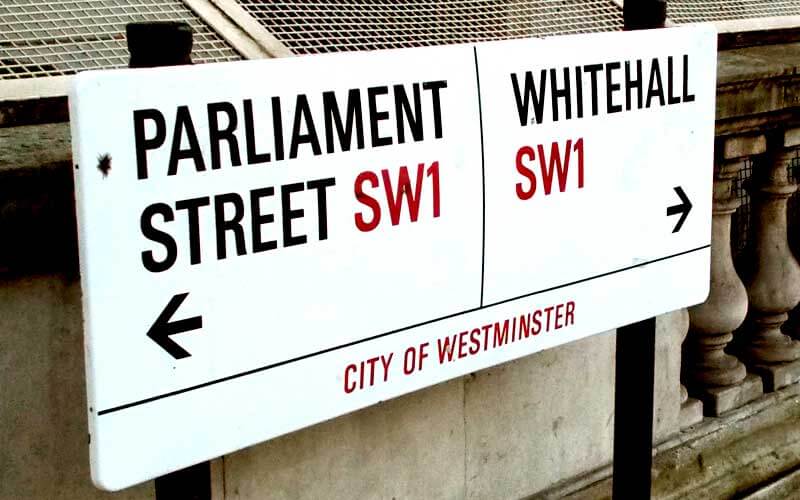Ministers delayed publishing a report that called for more research into the benefits of accessible housing for up to four years, Disability News Service can reveal.
The report, by architectural firm PRP, was finally published last week by the Ministry of Housing, Communities and Local Government (MHCLG), but none of the research and evidence referenced in the document is dated later than March 2016.
Payments for the research appear to have been made as long ago as April 2016, and PRP said this week that it was finalised in 2017.
The report examined evidence on the benefits of accessible housing, and the effectiveness of guidance relating to other buildings – under Part M of the building regulations – to see how well it was meeting the needs of disabled people.
The report found that the key benefits of accessible housing included reduced delayed hospital discharges, avoiding having to pay for temporary and permanent residential care, reduced costs to the NHS of trips and falls, reduced costs of aids and adaptations, and lower administrative costs of rehousing disabled people from inaccessible housing.
But the report concluded that there were gaps in the evidence on “the cost and frequency of these benefits that arise from building accessible homes”, and it added: “Further dedicated research to understand the benefits of more accessible housing is needed.”
The report also examined the effectiveness of guidance on “buildings other than dwellings”, which has not been updated since 2004.
It found that, although the guidance was “considered to be reasonable in meeting most needs of disabled people”, the lack of enforcement of that guidance was seen as “a critical issue”.
It also found that the needs of some disabled people may not currently be covered “adequately” by the guidance, including hearing- and visually-impaired people, people with restricted growth, people with complex and multiple impairments requiring personal assistants, and users of powered wheelchairs.
It also called for consideration of the needs of autistic people, those with mental health conditions, and people with dementia and other “cognitive health issues”.
Reviews of the experiences of disabled people and their families through social media and other online sources found concerns around issues such as the safety and visibility of accessible entrances; the location of accessible entrances “via non straightforward side or rear entrances”; and the location of accessible toilets.
This week, MHCLG refused to say when the research was completed, and why its publication had been delayed for so long.
But a spokesperson said in a statement: “We recognise the importance of improving accessible housing and since the report was completed we have used this research to inform policy.
“As the author recommends, we’re commissioning further research and will use that evidence to review and update statutory guidance.
“We are also reforming the entire building safety and standards system, including measures to improve compliance and enforcement.”
A PRP spokesperson said the company did not know why there had been such a long delay in publishing the report.
But she said the research was carried out from 2015 to 2016 and was finalised in 2017.
She said PRP had worked closely with MHCLG on various aspects of the building regulations and had “identified a gap in the provision of ergonomic standards for wheelchair users and to address this issue the MHCLG has now invited suppliers to tender for further research”.
She added: “We fully support the MHCLG’s initiative.”
The delay in publishing the report follows years of concerns about the government’s lack of action to deal with the accessible housing crisis.
A long-promised consultation paper – just 21 pages long – on whether it should introduce higher accessibility standards for new housing in England was finally published last September.
The previous month, the government was accused of “showing contempt” for disabled people after publishing an “utterly shameful” 84-page white paper on the future of the planning system, without including a single mention of disabled people, disability or accessible housing.
And in 2019, housing secretary Robert Jenrick was warned that he faced the threat of legal action over the government’s failure to take action to solve the crisis in accessible housing.
A note from the editor:
Please consider making a voluntary financial contribution to support the work of DNS and allow it to continue producing independent, carefully-researched news stories that focus on the lives and rights of disabled people and their user-led organisations.
Please do not contribute if you cannot afford to do so, and please note that DNS is not a charity. It is run and owned by disabled journalist John Pring and has been from its launch in April 2009.
Thank you for anything you can do to support the work of DNS…

 ‘Real danger’ that disabled people will not benefit from £39 billion for social and affordable homes
‘Real danger’ that disabled people will not benefit from £39 billion for social and affordable homes Disabled Londoners ‘face disaster’ if mayor and councils fail to take urgent action on accessible housing
Disabled Londoners ‘face disaster’ if mayor and councils fail to take urgent action on accessible housing Labour’s ‘watered-down’ response to Grenfell evacuation proposal ‘was a betrayal’
Labour’s ‘watered-down’ response to Grenfell evacuation proposal ‘was a betrayal’